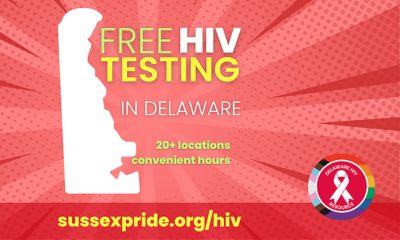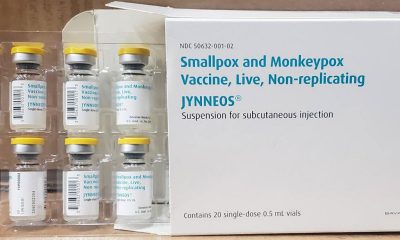Cannabis Culture
Cannabis Culture
1,600 lung injuries linked to vaping: CDC
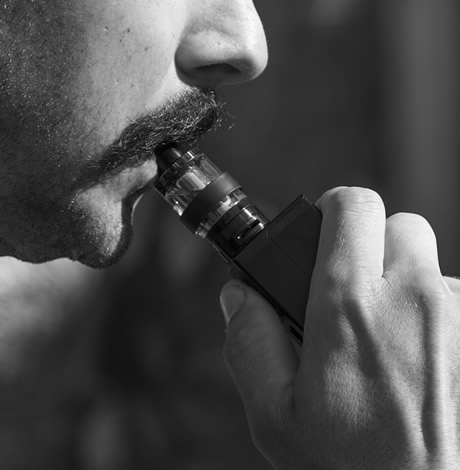
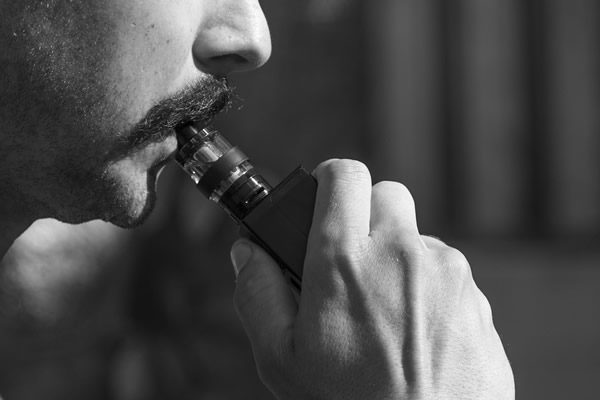
1,600 lung injuries linked to vaping: CDC
Updated data provided by the U.S. Centers for Disease Control has identified a total of 1,604 incidents of lung injury related to the use of portable vaping cartridge products, including 34 deaths.
A specific cause of the illness remains unknown, though some experts have speculated that the injuries may be related to additive ingredients in the e-liquid products, such as Vitamin E oil, or the presence of a specific metal-binding agent in certain types of portable cartridges. The agency states that the overwhelming majority of products associated with the illness were obtained via the unregulated “informal” market.
The CDC’s latest advisory concludes: “To date, no single compound or ingredient has emerged as the cause of EVALI (e-cigarette or vaping product use-associated lung injury), and there might be more than one cause. Because most patients report using THC-containing products before the onset of symptoms, CDC recommends that persons should not use e-cigarette, or vaping, products that contain THC. Persons should not buy any type of e-cigarette, or vaping, products, particularly those containing THC, off the street and should not modify or add any substances to e-cigarette, or vaping, products that are not intended by the manufacturer, including products purchased through retail establishments. In addition, because the specific compound or ingredient causing lung injury is not yet known, and while the investigation continues, persons should consider refraining from use of all e-cigarette, or vaping, products.”
Patients report cannabis offers relief for spinal cord injury symptoms
PHILADELPHIA —Many spinal cord injury (SCI) patients with a history of cannabis use say that it provides them “great relief,” according to data published in the journal Spinal Cord Series and Cases.
A team of investigators affiliated with Thomas Jefferson University in Philadelphia assessed cannabis utilization and attitudes in a national sample of patients with SCI.
Forty-two percent of respondents reported being either past users or current users of medical cannabis. Among them, 63 percent reported that cannabis offers “great relief” from symptoms – including the alleviation of pain and spasticity – while 30 percent reported that it provided more limited relief. Only six percent said that cannabis provided no relief from SCI symptoms. A majority of respondents also said that medical cannabis was more effective than prescription medications in treating their condition and that it possesses fewer adverse side effects.
Authors concluded: “Our findings support the notion that MC (medical cannabis) may have an important role – either as adjuvant therapy or as monotherapy – in treating a number of common symptoms experienced by individuals living with SCI. There is certainly a need for expedited clinical trials evaluating efficacy of MC in chronic SCI, and no justification for cannabis’ continued classification as a Schedule 1 drug, a designation indicating that it has no accepted medical use.”
6 in 10 physicians say cannabis a ‘legitimate medical therapy’
ROCHESTER, Minn. — Nearly six in 10 primary care physicians believe that medical cannabis is a “legitimate” therapeutic option, according to survey data published in the journal BMC Family Practice.
Investigators with the Mayo Clinic surveyed the attitudes of primary care providers in a large Minnesota-based health care system.
Fifty-eight percent of respondents agreed with the statement that “medical cannabis was a legitimate medical therapy.” That finding is consistent with both national and state-specific surveys similarly showing that most doctors are supportive of medical cannabis access.
Nonetheless, half of respondents expressed discomfort in talking to their patients about medical cannabis options, a finding that is also consistent with prior data. Many expressed a desire to receive additional education about cannabis in order to become better versed in the subject.
Authors concluded: “Providers generally believe that medical cannabis is a legitimate medical therapy. Significant opportunities exist to: 1) close knowledge gaps for clinicians through the collection and dissemination of information about the effectiveness of medical cannabis for state qualifying conditions; 2) alleviate concerns about drug interactions by exploring opportunities for information sharing between dispensaries and traditional medical practices; and 3) expand the knowledge base about how medical cannabis impacts patient QOL (quality of life).”
Cannabis Culture news in the Blade is provided in partnership with NORML. For more information, visit norml.org.
Photo courtesy of blacknote.com/e-juice/ via Pixabay.

Democratic Gov. Michelle Lujan Grisham earlier this month signed two separate measures into law amending the state’s marijuana policies. The first measure (House Bill 2) legalizes and regulates marijuana possession, production, and sales for adults. The second measure (Senate Bill 2) facilitates the automatic review and expungement of the records of those convicted of low-level marijuana offenses.
Lawmakers approved both bills during a special legislative session demanded by Gov. Lujan Grisham, who had been a vocal proponent of the reforms.
NORML State Policies Manager Carly Wolf said: “This is a day to celebrate! New Mexico will greatly benefit from this new revenue stream and the creation of thousands of jobs. Most notably though, legalization will spare thousands of otherwise law-abiding residents from arrest and a criminal record, and the state’s new expungement law will help provide relief to many who are suffering from the stigma and other collateral consequences associated with a prior marijuana conviction.”
The adult-use measure (House Bill 2) permits those ages 21 and older to legally purchase up to two ounces of marijuana and/or up to 16 grams of cannabis extract from licensed retailers. It also permits adults to home-cultivate up to six mature plants for their own personal use. Retail sales would begin by April 2022.
The expungement measure (Senate Bill 2) stipulates that those with past convictions for offenses made legal under this act are eligible for automatic expungement of their records. Those currently incarcerated for such offenses are eligible for a dismissal of their sentence. It’s estimated that over 150,000 New Mexico residents are eligible for automatic expungement under this measure, according to the Department of Public Safety.
Cannabis Culture news in the Blade is provided in partnership with NORML. Visit norml.org for more information.
Cannabis Culture
Delaware cannabis activists take on corporate marijuana
Criticism from medical marijuana operators claimed that HB150 offers too many cultivation and retail licenses
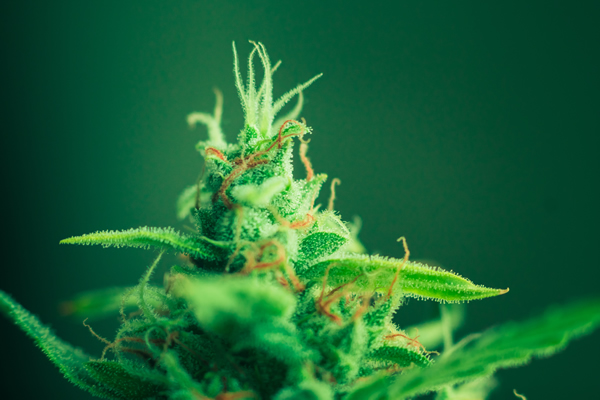
As the country moves forward with sweeping changes in cannabis policy reform, locals in Delaware are tangling with corporate, multi-state medical marijuana permit holders to pass a bill for full legalization.
Adult-use activists and registered medical patients were stunned to hear opposing testimony from Delaware’s medical marijuana operators. Patients already deal with limited access and costly products. Now, many see the established industry voicing opposition as simply obstructing the progress of adult-use legislation. In response, some patients are now staging a boycott of the regulated dispensaries.
During the first committee hearing for HB150, Delaware’s adult-use bill, four of the state’s six currently licensed, multi-million dollar medical cannabis facilities offered negative testimony.
Zoë Patchell, executive director of Delaware CAN responded: “This market belongs to the long-time consumers, patients, and activists. We create the demand, we’ve been the ones driving the reform efforts, and we pay the prices at dispensaries. Cannabis is more than a market – cannabis is a community. These companies cannot reasonably fathom that we are going to purchase cannabis from any entity that has proven to put profits over patients. And now they seem willing to put consumers’ lives and freedom at risk just to hold out for an unfair advantage in the industry.”
These included publicly traded Columbia Care, “Fresh Delaware” aka CCRI, CannTech Research Inc., and the owner of EZY Venture aka “The Farm.”
They all went on record condemning HB150, and pushing a false narrative about oversupply. The core demand from the permit cartel was some protection for their private business interests with guaranteed adult-use licenses.
Criticism from the medical marijuana operators claimed that HB150 offers too many new cultivation and retail licenses, underlined by deep yet unfounded fears that the new competition would put their companies out of business.
Patchell noted, “We are not going to sit back while multi-state corporate entities, that already monopolize East Coast medical markets, work to undermine our social equity and micro-license provisions.”
Cannabis Culture news in the Blade is provided in partnership with NORML. Visit norml.org for more information.
Cannabis Culture
Virginia marijuana legalization takes effect July 1
Adult possession of cannabis up to one ounce without penalty

Following legislative approval of Democratic Gov. Ralph Northam’s amendments to Senate Bill 1406 and House Bill 2312, Virginia became the first southern state to legalize the possession and use of marijuana by adults.
Senate Bill 1406, introduced by Sen. Adam Ebbin (D-30) and Senate President Pro Tempore Senator Louise Lucas (D-18), and House Bill 2312, patroned by House Majority Leader Delegate Charniele Herring (D-46), establish a statutory timeline for the legalization of the commercial marijuana market in Virginia. The measure also permits for the personal possession and cultivation of cannabis by those ages 21 or older.
Last week, Gov. Northam recommended changes to the legislation to permit the personal use provisions of the law to take effect on July 1, 2021 rather than on January 1, 2024, the enactment date initially approved by lawmakers. A majority of the legislature concurred with that change.
Therefore, beginning July 1, 2021, adults will be permitted to possess up to one ounce of marijuana and to cultivate up to four cannabis plants per household without penalty.
The timeline by which state regulators have to enact provisions licensing commercial cannabis production and sales remains July 1, 2024.
Commenting on final passage, NORML Development Director Jenn Michelle Pedini, who also serves as executive director of Virginia NORML, said: “This is an incredible victory for Virginia. Legalization will bring an end to the thousands of low-level marijuana infractions occurring annually in the Commonwealth — ending a discriminatory practice that far too often targets Virginians who are young, poor, and people of color.”
Majority Leader Charniele Herring added: “It is a huge day for equity in the Commonwealth. Virginia is now the first state in the South to legalize recreational marijuana use, and I am so proud to have been able to carry this monumental legislation.”
Sen. Ebbin said, “The passage of SB1406 caps off years of struggle to reform our broken and outdated marijuana laws and begins the deliberate steps to repeal the harms of the failed prohibition. I am thankful to NORML, the governor, and my colleagues for moving this 283 bill from inception to passage over the last four months, and look forward to continuing to partner with them to establish a regulated, equity focused, adult-use marketplace in the coming years.”
Newly released statewide polling data finds that 68 percent of registered voters in Virginia, including majorities of Democrats and Republicans, support legalizing marijuana for adults.
Additional amendments added by Gov. Northam will allow the sealing of records related to crimes involving the misdemeanor possession of marijuana with the intent to distribute. Those records will begin to be sealed starting on July 1, 2021. Separate legislation enacted in 2020 previously sealed records related to misdemeanor marijuana possession.
Records specific to the simple possession of marijuana and/or misdemeanor possession with intent to distribute records will be automatically expunged no later than 2025. Those with records specific to crimes involving the felony possession of marijuana with the intent to distribute may begin to petition the courts for an expounging of their records in 2025.
The bill also allows for the re-sentencing of individuals currently incarcerated for marijuana-related offenses. The measure permits those individuals to have a hearing before the court that originally sentenced them, with legal counsel provided for indigent individuals. However, this portion of the bill must be reenacted in 2022.
The legislation also establishes an independent agency, the Virginia Cannabis Control Authority, to oversee the establishment of regulations that will govern the adult-use market. This agency is set to convene this summer. The remainder of the 300-page bill, which details the regulatory and market structure and social equity provisions, is subject to a second review and vote by the Assembly next year.
Cannabis Culture news in the Blade is provided in partnership with NORML. Visit norml.org for more information.
-

 Canada2 days ago
Canada2 days agoToronto Pride parade cancelled after pro-Palestinian protesters disrupt it
-

 Baltimore4 days ago
Baltimore4 days agoDespite record crowds, Baltimore Pride’s LGBTQ critics say organizers dropped the ball
-

 Sports4 days ago
Sports4 days agoHaters troll official Olympics Instagram for celebrating gay athlete and boyfriend
-

 Congress5 days ago
Congress5 days agoMembers of Congress introduce resolution to condemn Uganda’s Anti-Homosexuality Act



